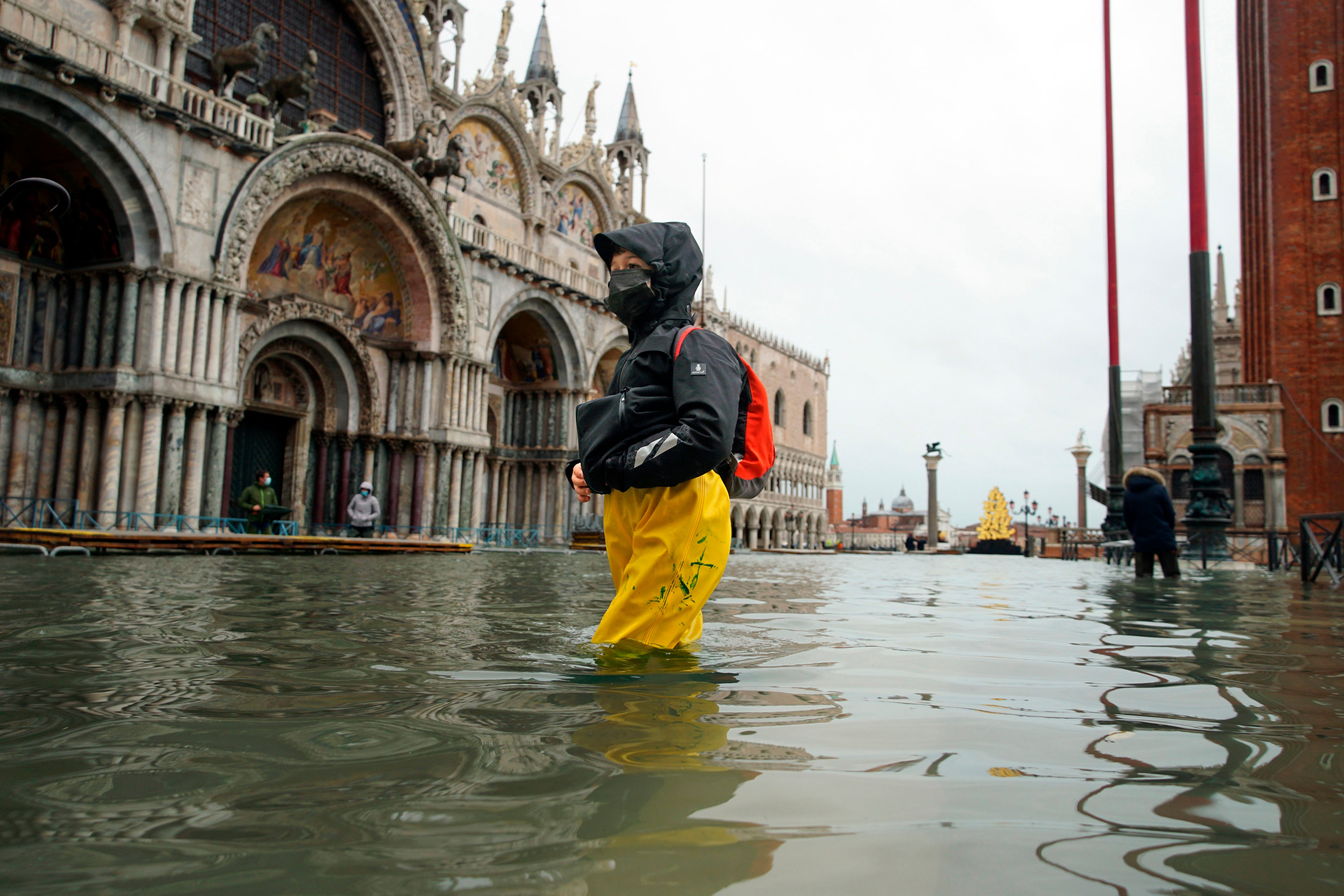High tide floods Venice as dike-on-demand wasn't activated
High tides have flooded St. Mark’s Square in Venice, propelled by winds that were stronger than predicted

Your support helps us to tell the story
From reproductive rights to climate change to Big Tech, The Independent is on the ground when the story is developing. Whether it's investigating the financials of Elon Musk's pro-Trump PAC or producing our latest documentary, 'The A Word', which shines a light on the American women fighting for reproductive rights, we know how important it is to parse out the facts from the messaging.
At such a critical moment in US history, we need reporters on the ground. Your donation allows us to keep sending journalists to speak to both sides of the story.
The Independent is trusted by Americans across the entire political spectrum. And unlike many other quality news outlets, we choose not to lock Americans out of our reporting and analysis with paywalls. We believe quality journalism should be available to everyone, paid for by those who can afford it.
Your support makes all the difference.High tides flooded St. Mark’s Square in Venice on Tuesday, propelled by winds that were stronger than predicted, and an experimental system of inflatable barriers wasn’t activated to prevent water from invading the lagoon city.
The system, while still in an experimental phase, gets activated when high tides are predicted to reach at least 1.3 meters (4 feet, 4 inches). Tuesday's tide was predicted to reach 1.25 meters. Instead, it kept rising, to a height of 1.38 meters, in late afternoon.
Some shops were flooded, and Venetians waded in water as they scrambled to set out raised walkways. Damage to shops and other business was destined to compound the suffering already sharply felt in Venice’s economy by tourism largely washed away by the pandemic.
“Unfortunately, the weather is freer than us. It does what it wants,” Venice Mayor Luigi Brugnaro said ruefully, referring to the stronger-than-expected winds that whipped across the Adriatic from Croatia’s coastline.
In July, Venice successfully carried out a trial run of the ambitious anti-flood system, which consists of 78 barriers that can be inflated when needed to rise from the sea like a kind of dike-on-demand. The system is dubbed Moses after the Biblical figure, who, in the Old Testament account, parted the waters of the Red Sea.
Just over a year ago, Venice experienced its worst flooding in more than 50 years when the water reached 1.87 meters (6 ½ feet) in the city.
The new moveable barrier system is designed to protect the city from tides as high as three meters (10 feet).
A tide of 1.20 meters (four feet) was predicted for Wednesday, and workers were arriving to prepare to activate the barrier system hours before then, the mayor said.
“We’re working to activate Moses tonight in view of the peak prediction for tomorrow (Wednesday),” Brugnaro said. The barriers would likely be activated shortly after midnight, he said.
Noting that the system was still in the experimental stage, the mayor said “more rapid protocols” to activate it were needed, in view of Tuesday's flooding.